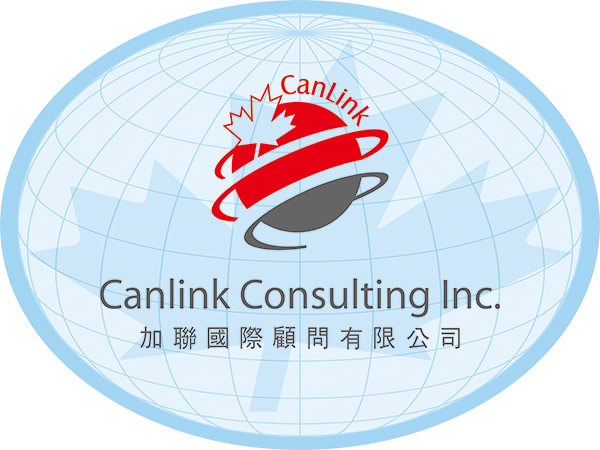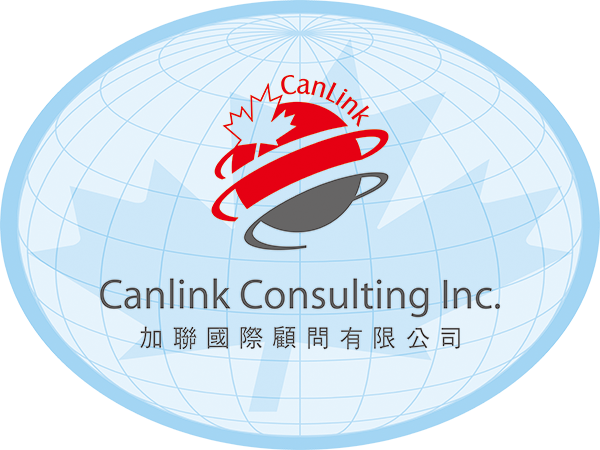Canada’s Start-up Visa Program targets immigrant entrepreneurs with the skills and potential to build businesses in Canada that:
- are innovative
- can create jobs for Canadians
- can compete on a global scale
Do you have an innovative business idea? If you can get support for your idea from one of the designated organizations, you may be able to immigrate to Canada.
To be eligible for the Start-up Visa Program, you must:
- have a qualifying business
- get a letter of support from a designated organization
- meet the language requirements
- bring enough money to settle
Have a qualifying business
A qualifying business means you created a business that meets the following conditions.
- At the time you get a commitment from a designated organization:
each applicant holds 10% or more of the voting rights attached to all shares of the corporation outstanding at that time (up to 5 people can apply as owners)
AND
- applicants and the designated organization jointly hold more than 50% of the total voting rights attached to all shares of the corporation outstanding at that time
- At the time you receive your permanent residence:
- you provide active and ongoing management of this business from within Canada
- an essential part of the operations of the business happens in Canada
- this business is incorporated in Canada
Get a letter of support from a designated organization
You must get a letter of support from a designated organization (a business group that has been approved to invest in or support possible start-ups).
You’ll need to:
- contact the designated organization to find out how to get its support
- convince the organization that you have a business idea that is worth supporting
- get a letter of support from the designated organization
The process to pitch your idea is different for each organization. Each organization has its own requirements. For example, you may be asked to present your business concept in person or submit a detailed business plan.
If you reach an agreement with a designated organization, it will send you a letter of support. You need to include this letter when you submit your application to us. This is the proof you need to show that the venture capital fund, angel investor group, or business incubator is supporting your business idea.
The organization will also send a commitment certificate directly to us. We’ll use both your letter of support and the organization’s commitment certificate to assess your application. Please note, we may ask you for more business information in order to take a final decision on your application.
If you don’t include the letter of support or meet any of the other requirements, we’ll refuse your application.
Meet the language requirements
The ability to communicate and work in English, French or both languages will help your business succeed in Canada.
You must take a language test from an approved agency and include the results with your application, or we won’t process it.
You must meet the minimum level of the Canadian Language Benchmark (CLB) 5 in either English or French in all of these four areas:
- speaking
- reading
- listening
- writing
Use your test results to find your CLB level.
If you don’t meet the minimum language skills, we’ll refuse your application.
Bring enough money to settle
The Government of Canada does not give financial support to new start-up visa immigrants.
When you apply, you’ll need to give proof that you have the money to support yourself and your dependants after you arrive in Canada. You can’t borrow this money from another person.
The amount you need depends on the size of your family. We update these amounts every year.
| Number of family members | Funds required (in Canadian dollars) |
|---|---|
| 1 | $12,960 |
| 2 | $16,135 |
| 3 | $19,836 |
| 4 | $24,083 |
| 5 | $27,315 |
| 6 | $30,806 |
| 7 | $34,299 |
| For each additional family member | $3,492 |
How much money should you bring?
Find out how much it costs to live where you’re planning to settle in Canada.
Bring as much money as possible to make moving to Canada and finding a home easier.
The Rural and Northern Immigration Pilot is a community-driven program. It’s designed to spread the benefits of economic immigration to smaller communities by creating a path to permanent residence for skilled foreign workers who want to work and live in one of the participating communities.
About the process
There are 4 steps to applying for permanent residence under this pilot.
- Check that you meet both
- Find an eligible job with an employer in one of the participating communities.
- Once you have a job offer, submit your application for recommendation to the community.
- If a community recommends you, apply for permanent residence.
Each community will also have its own
- additional eligibility requirements
- job search process
- community recommendation application process
This information will be available on its website.
Participating communities
The pilot will launch in participating communities at different times.
If a website is listed as “coming soon,” the pilot hasn’t launched in that community.
| Community | Community website |
|---|---|
| North Bay, ON | https://northbayrnip.ca/ |
| Sudbury, ON | https://investsudbury.ca |
| Timmins, ON | www.timminsedc.com |
| Sault Ste. Marie, ON | www.welcometossm.com |
| Thunder Bay, ON | www.gotothunderbay.com |
| Brandon, MB | www.economicdevelopmentbrandon.com |
| Altona/Rhineland, MB | www.seedrgpa.com |
| Moose Jaw, SK | https://www.moosejawrnip.ca/ |
| Claresholm, AB | www.claresholm.ca |
| Vernon, BC | https://rnip-vernon.ca |
| West Kootenay (Trail, Castlegar, Rossland, Nelson), BC | https://wk-rnip.ca/ |
What you can expect from a community
This pilot is community-driven, meaning the communities will
- assess prospective candidates who
- best fit the economic needs of these community
- have a genuine employment opportunity that meets their community requirements
- have the intention of staying in the community
- recommend candidates for permanent residence to IRCC for a final decision
- connect newcomers with settlement services and mentoring opportunities with established members of the community
To be eligible for the Rural and Northern Immigration Pilot Program, you must meet all IRCC eligibility requirements. You must
- have qualifying work experience or have graduated from a publicly funded post-secondary institution in the recommending community
- meet or exceed the language requirements
- meet or exceed the educational requirements
- prove you have enough money to support your transition into the community
- intend to live in the community
- meet community-specific requirements
If you meet all of the requirements, you can start to look for an eligible job in the community.
Work experience
You need 1 year of continuous work experience (at least 1,560 hours) in the past 3 years.
To calculate your hours of work experience
- count the hours worked in part-time and full-time jobs
- The hours must be in 1 occupation, but they can be with different employers.
- The hours must be over a period of at least 12 months.
- These working hours can be inside or outside Canada.
- If you worked in Canada, you must have been allowed to work in Canada.
- don’t count hours you weren’t paid for (volunteering or unpaid internships don’t count)
- don’t count hours when you were self-employed
Your work experience must include
- most of the main duties and all the essential duties listed in your National Occupational Classification (NOC)
- the activities listed in the lead statement of your NOC
You can see which duties are involved by searching your job title on the NOC web page.
International students
You’re exempt from the work experience criteria above if you’re an international student who graduated with
- A credential from a post-secondary program of 2 years or longer and you
- were studying as a full-time student for the full duration of the 2+ years
- received the credential no more than 18 months before your application for permanent residence
- were in the community for at least 16 of the last 24 months spent studying to get your credential
or
- A master’s degree or higher and you
- were studying as a full-time student for the duration of your degree
- got your degree no more than 18 months before your application for permanent residence
- were in the community for the length of your studies
You cannot apply as an international student if your credentials are from a program in which
- studying English or French made up more than half of the program
- distance learning made up more than half of the program
- a scholarship or fellowship was awarded that requires you to return to your home country to apply what you learned
What is a credential?
Credential here means a degree, diploma, certificate, or trade or apprenticeship from a Canadian publicly funded institution in the community recommending you. You must also have had valid temporary resident status for the duration of your studies.
Language requirements
You must meet the minimum language requirements based on the NOC category that applies to the job offer in the community. This can either be the
- Canadian Language Benchmarks (CLB) or
- Niveaux de compétence linguistique canadiens (NCLC)
The minimum language requirements for each NOC category are
- NOC 0 and A: CLB/NCLC 6
- NOC B: CLB/NCLC 5
- NOC C and D: CLB/NCLC 4
You must submit your results from a designated language test. These results must be less than 2 years old when you apply.
Find out more about language testing.
Educational requirements
You must have one of the following:
- a Canadian secondary school (high school) diploma, or
- a Canadian post-secondary certificate, diploma or degree, or
- an educational credential assessment (ECA) report, from a designated organization or professional body, showing that you completed a foreign credential that’s equal to a Canadian secondary school (high school) or post-secondary certificate, diploma or degree (your ECA report must be less than 5 years old on the date of your application).
Settlement funds
Unless you’re already working legally in Canada when you apply, you must prove you have enough money to support yourself and any family members while you get settled in your community.
You must prove you have enough money to support any family members you may have, even if they’re not coming to Canada with you.
Find out more about settlement funds.
Intend to live in the community
To participate in the pilot, you must plan to live in the community.
Community-specific requirements
Each community will have additional requirements for applicants.
Visit their websites to learn about their community-specific requirements.
Community websites
The pilot will launch in participating communities at different times.
If a website is listed as “coming soon,” the pilot hasn’t launched in that community.
| Community | Community website |
|---|---|
| North Bay, ON | https://northbayrnip.ca/ |
| Sudbury, ON | https://investsudbury.ca |
| Timmins, ON | www.timminsedc.com |
| Sault Ste. Marie, ON | www.welcometossm.com |
| Thunder Bay, ON | www.gotothunderbay.com |
| Brandon, MB | www.economicdevelopmentbrandon.com |
| Altona/Rhineland, MB | www.seedrgpa.com |
| Moose Jaw, SK | https://www.moosejawrnip.ca/ |
| Claresholm, AB | www.claresholm.ca |
| Vernon, BC | https://rnip-vernon.ca |
| West Kootenay (Trail, Castlegar, Rossland, Nelson), BC | https://wk-rnip.ca/ |

